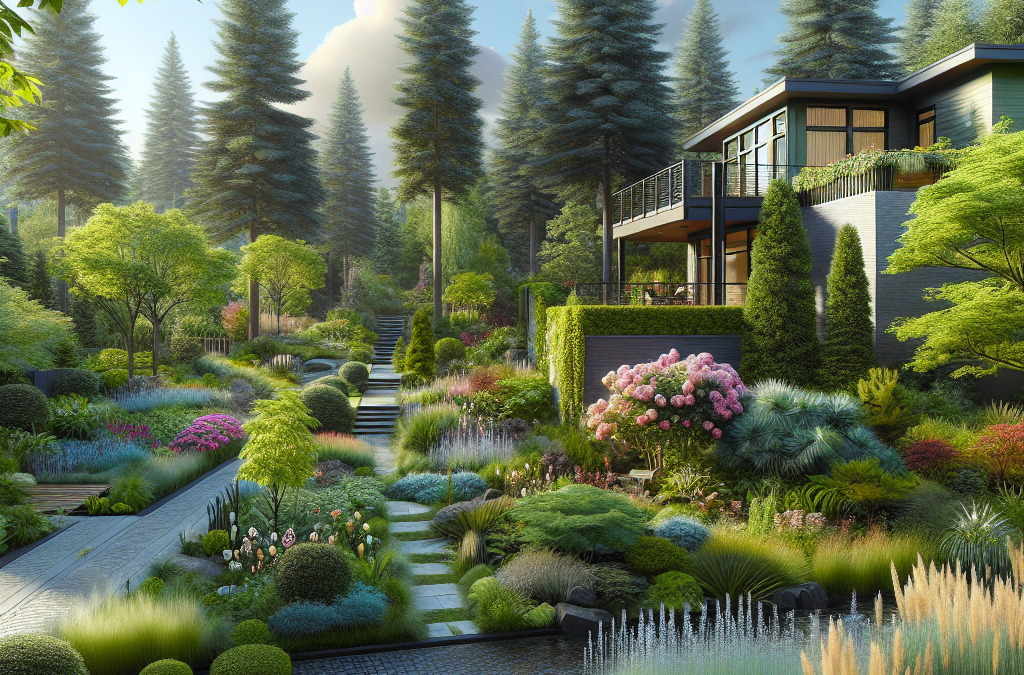Nestled in the Pacific Northwest, Portland is renowned for its lush greenery and natural beauty, making it an ideal canvas for captivating residential landscapes. Portland residential landscape design focuses on harmonizing with the city’s unique climate, flora, and topography. Whether you’re aiming for a modern, minimalist look or a lush, verdant retreat, the possibilities are endless.
Understanding the fundamentals of landscape design is crucial. This involves a blend of art and science, where creativity meets functionality. Key elements such as balance, contrast, and unity play significant roles in crafting a landscape that is not only visually appealing but also sustainable. Portland’s temperate climate allows for a diverse range of plants, from evergreens to seasonal blooms, which can be strategically incorporated to enhance the aesthetic appeal of your outdoor space.
Moreover, integrating eco-friendly practices like rain gardens, native plantings, and permeable pavements can significantly contribute to environmental sustainability. These practices not only reduce water consumption but also support local wildlife and improve soil health.
Contact us today to discover how our landscaping services can transform your property! https://yardservicepdx.com
Benefits of Professional Landscape Design
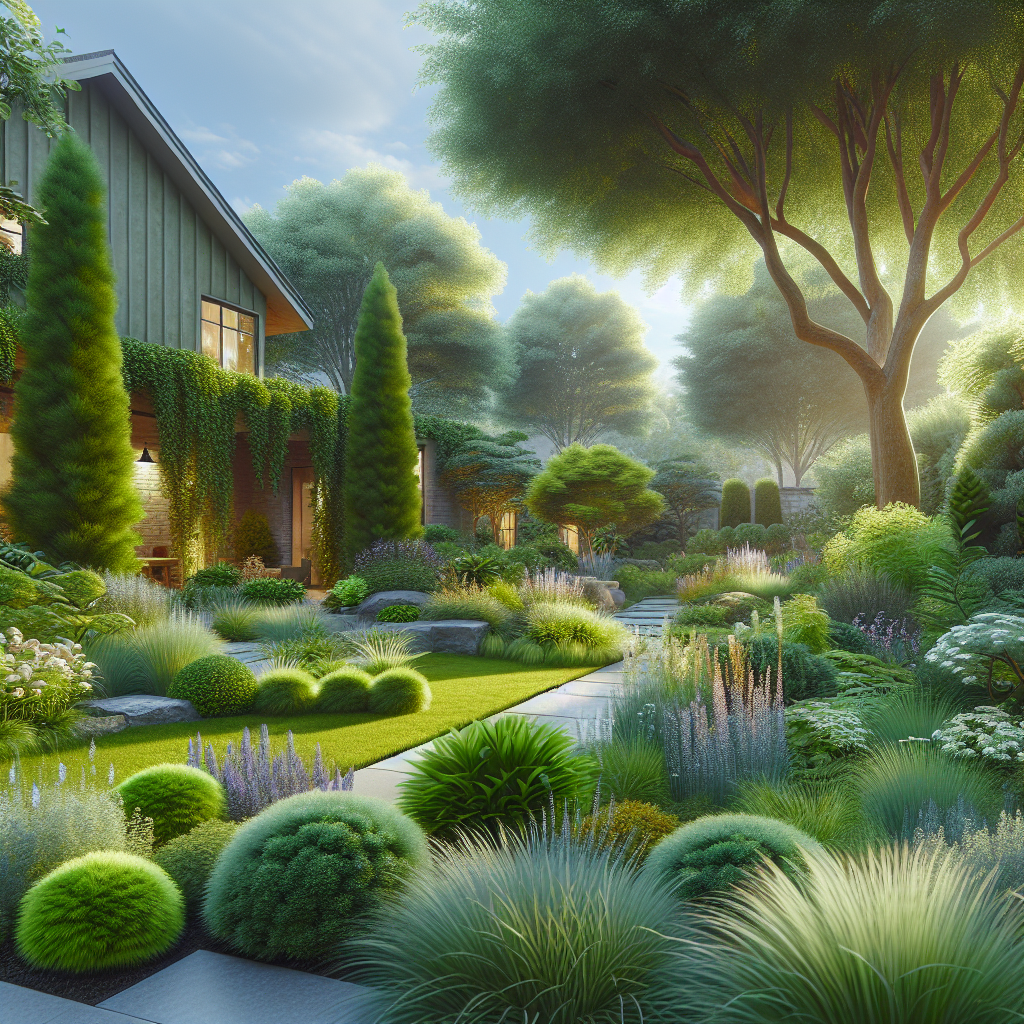
Investing in professional landscape design offers numerous advantages that extend beyond mere aesthetics. One of the most significant benefits is the increase in property value. A well-designed landscape can boost curb appeal, making your home more attractive to potential buyers and ultimately increasing its market value.
Professional landscape designers bring a wealth of knowledge and expertise to the table. They understand the intricacies of plant selection, soil types, and climate considerations specific to Portland residential landscape design. This ensures that your landscape not only looks beautiful but also thrives in the local environment.
Another advantage is the efficient use of space. Professionals can transform even small or awkwardly shaped yards into functional and aesthetically pleasing areas by incorporating features like patios, walkways, and garden beds. This maximizes your outdoor living space, providing more areas for relaxation and entertainment.
Moreover, professional landscape design often incorporates sustainable practices. From choosing native plants that require less water to designing rainwater harvesting systems, these eco-friendly strategies can reduce your landscape’s environmental footprint. This not only helps the planet but can also lead to cost savings on water and maintenance over time.
Lastly, a professionally designed landscape can enhance your overall quality of life. By creating serene, beautiful outdoor spaces, you can enjoy more time outdoors, whether it’s for gardening, entertaining, or simply unwinding after a busy day. The therapeutic benefits of nature are well-documented, and a well-crafted landscape can serve as your personal oasis.
Popular Landscaping Trends in Portland
Portland is known for its lush greenery and eco-conscious residents, which heavily influence the local landscaping trends. One of the most popular trends in Portland residential landscape design is the use of native plants. Native species are well-adapted to the local climate and soil conditions, making them easier to maintain and more sustainable. Plants like Oregon Grape, Sword Fern, and Red Flowering Currant are common choices.
Another burgeoning trend is the integration of edible gardens. Homeowners are increasingly interested in growing their own fruits, vegetables, and herbs. This not only provides fresh produce but also adds a unique, functional element to the landscape. Raised garden beds, vertical gardens, and fruit trees are all popular features in these designs.
Water features are also gaining popularity. From small fountains to elaborate koi ponds, water elements add a sense of tranquility and can serve as focal points in your landscape. Given Portland’s abundant rainfall, incorporating rain gardens to manage stormwater runoff is both practical and stylish.
Sustainable practices continue to be at the forefront of landscaping trends. This includes the use of permeable pavers to reduce runoff, rainwater harvesting systems, and the installation of energy-efficient outdoor lighting. These eco-friendly choices not only benefit the environment but also reduce long-term maintenance costs.
Finally, outdoor living spaces are becoming increasingly essential. Portland residents love to make the most of their outdoor areas by creating spaces for dining, lounging, and entertaining. Features like fire pits, outdoor kitchens, and pergolas are popular additions that make outdoor living more enjoyable year-round.
These trends reflect Portland’s unique blend of natural beauty and environmental responsibility, offering endless inspiration for transforming your own landscape.
Essential Elements of a Great Landscape
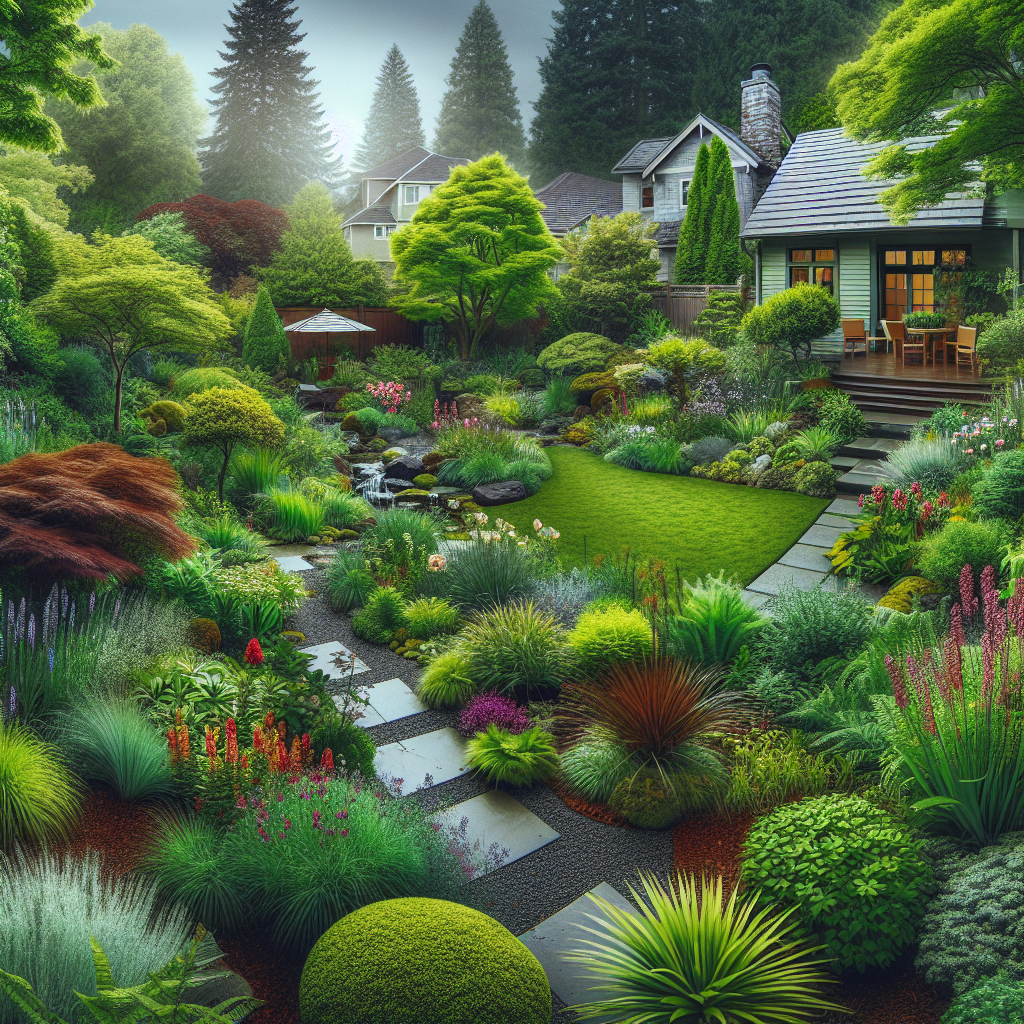
A great landscape is more than just a visually appealing space; it’s a harmonious blend of various elements that work together to create a functional and inviting environment. When planning your Portland residential landscape design, consider these essential elements to ensure your outdoor space stands out.
1. Structure and Layout: The foundation of any landscape design is its structure. This includes the layout of hardscapes such as pathways, patios, and retaining walls. A well-thought-out layout not only enhances the visual appeal but also ensures ease of movement and usability. Consider using natural materials like stone or wood to blend seamlessly with Portland’s natural surroundings.
2. Plant Selection: Choosing the right plants is crucial. Native plants are often the best choice as they are adapted to the local climate and require less maintenance. Incorporate a mix of trees, shrubs, perennials, and annuals to create layers of interest and ensure year-round color and texture. Don’t forget to consider the plant’s mature size and growth habits to avoid overcrowding.
3. Water Features: Adding water features can elevate the ambiance of your landscape. Whether it’s a simple birdbath, a cascading waterfall, or a tranquil pond, water elements bring a sense of tranquility and can serve as focal points. In Portland, incorporating rain gardens can also help manage stormwater runoff effectively.
4. Lighting: Outdoor lighting is not just for aesthetics; it also enhances safety and extends the usability of your outdoor space into the evening hours. Use a combination of path lights, accent lights, and overhead lighting to create a well-lit and inviting atmosphere.
5. Functional Spaces: A great landscape should cater to your lifestyle. Consider creating distinct areas for dining, lounging, gardening, and play. Features like fire pits, outdoor kitchens, and seating areas can make your landscape more functional and enjoyable.
By thoughtfully integrating these elements, you can create a landscape that is not only beautiful but also practical and sustainable. Each element should complement the others, resulting in a cohesive and harmonious outdoor space that you and your family can enjoy for years to come.
Sustainable Landscaping Practices in Portland
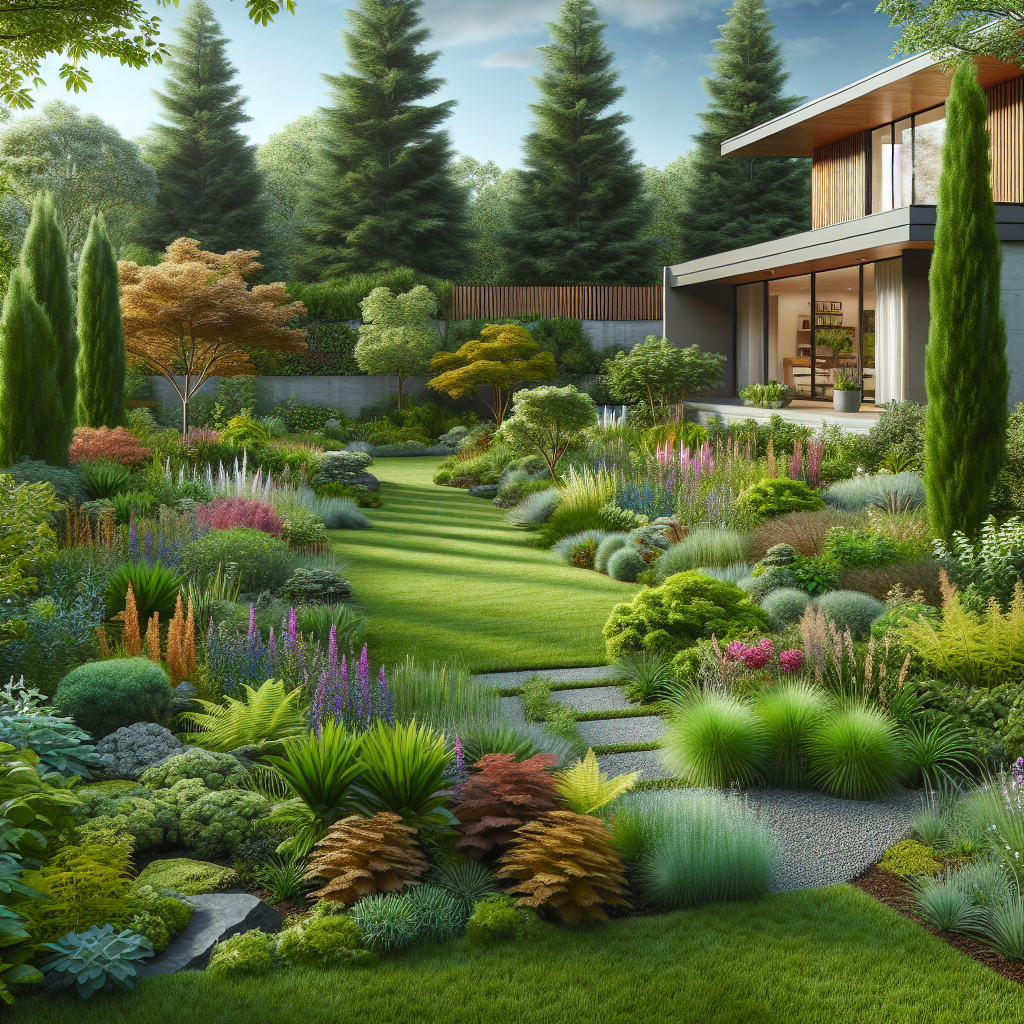
Incorporating sustainable landscaping practices is not only beneficial for the environment but also for the long-term health and beauty of your garden. Portland, known for its lush green landscapes and eco-conscious community, is the perfect place to adopt these practices. Here are some key sustainable landscaping methods to consider for your Portland residential landscape design.
1. Native and Drought-Tolerant Plants: Selecting native plants that are adapted to the local climate reduces the need for excessive watering and chemical fertilizers. Drought-tolerant plants like Oregon grape, red-flowering currant, and sword fern are excellent choices that thrive in Portland’s natural conditions.
2. Efficient Irrigation Systems: Water conservation is crucial in sustainable landscaping. Implementing efficient irrigation systems such as drip irrigation or soaker hoses can significantly reduce water usage. Additionally, consider installing a rain sensor to prevent overwatering during rainy periods, which are common in Portland.
3. Composting and Mulching: Composting organic waste like leaves, grass clippings, and kitchen scraps creates nutrient-rich soil that promotes healthy plant growth. Mulching around plants helps retain soil moisture, suppress weeds, and reduce the need for chemical herbicides.
4. Permeable Paving: Using permeable materials for walkways and driveways allows rainwater to seep into the ground, reducing runoff and promoting groundwater recharge. Materials such as gravel, permeable concrete, and pavers with gaps are excellent choices for sustainable hardscaping.
5. Rainwater Harvesting: Collecting and reusing rainwater is an effective way to conserve water. Installing rain barrels or a more extensive rainwater harvesting system can provide a valuable water source for irrigation and other outdoor uses.
6. Wildlife-Friendly Habitats: Creating habitats that support local wildlife, such as birds, bees, and butterflies, enhances biodiversity and encourages a healthy ecosystem. Planting a variety of native flowering plants, maintaining water sources, and providing shelter are simple ways to attract and support wildlife in your garden.
By integrating these sustainable practices into your landscape design, you not only contribute to the health of the environment but also create a resilient and thriving outdoor space. Sustainable landscaping is a rewarding approach that ensures your garden remains beautiful and functional for years to come, while also aligning with Portland’s commitment to environmental stewardship.
Choosing the Right Landscape Designer
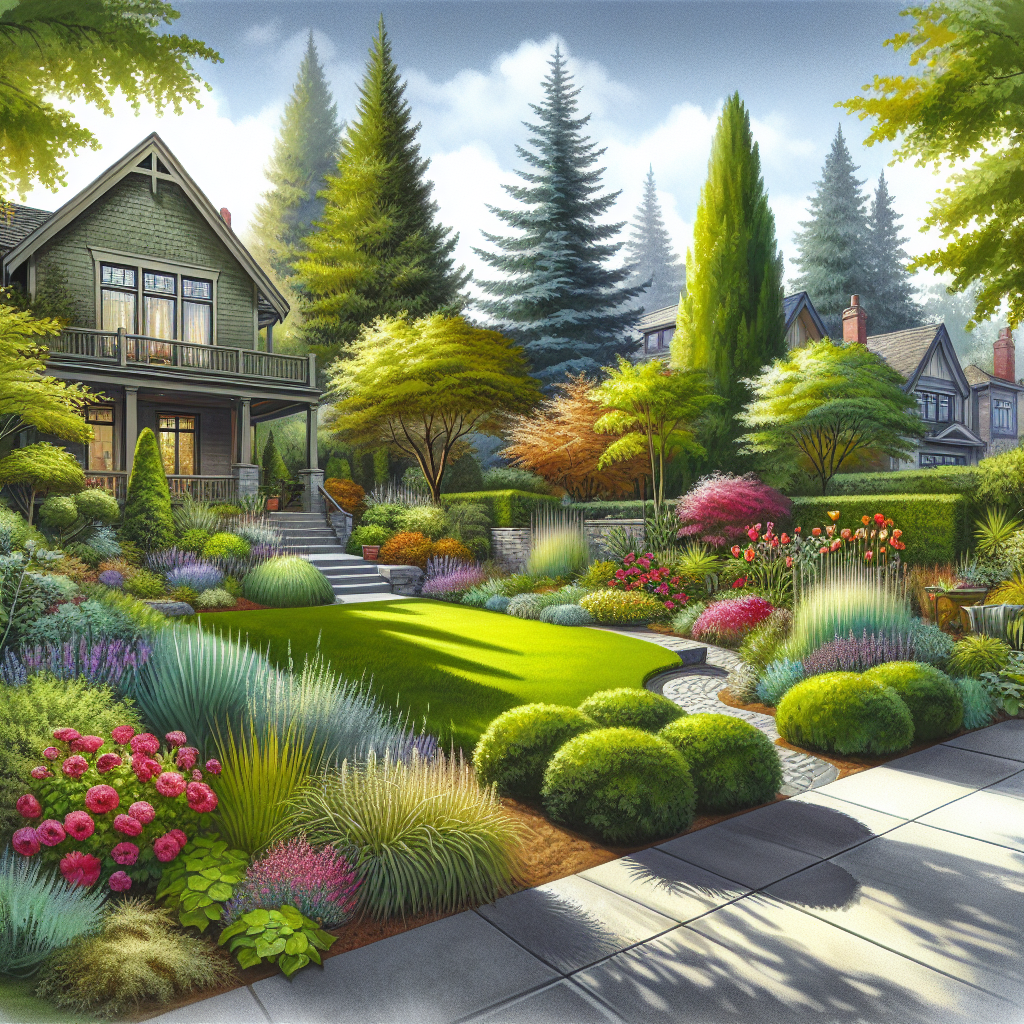
Selecting the right landscape designer is a critical step in achieving your dream outdoor space. With numerous professionals available, it can be challenging to determine who will best meet your needs. Here are some essential tips to help you choose the perfect landscape designer for your Portland residential landscape design.
1. Research and Referrals: Start by conducting thorough research. Look for designers with strong portfolios and positive reviews. Don’t hesitate to ask friends, family, or neighbors for referrals, especially if you admire their landscaping.
2. Verify Credentials: Ensure the designer has the necessary qualifications and certifications. Membership in professional organizations such as the Association of Professional Landscape Designers (APLD) can also indicate a commitment to the industry and ongoing education.
3. Experience and Expertise: Consider the designer’s experience and areas of expertise. A designer with extensive experience in Portland’s unique climate and soil conditions will be better equipped to create a sustainable and thriving landscape.
4. Design Style: Review the designer’s previous projects to see if their style aligns with your vision. Whether you prefer a modern, minimalist look or a lush, traditional garden, finding a designer whose aesthetic matches yours is crucial.
5. Communication and Collaboration: Effective communication is key to a successful project. Choose a designer who listens to your ideas, understands your needs, and is willing to collaborate throughout the process. A good designer will also provide clear timelines and transparent pricing.
6. Budget Considerations: Discuss your budget upfront and ensure the designer can work within your financial constraints without compromising on quality. A professional designer should be able to suggest cost-effective solutions that meet your goals.
Choosing the right landscape designer can make all the difference in transforming your outdoor space into a beautiful and functional oasis. By following these tips, you can find a designer who will bring your vision to life while ensuring your project stays on track and within budget.
Contact us today to discover how our landscaping services can transform your property! Visit yardservicepdx.com to learn more.

